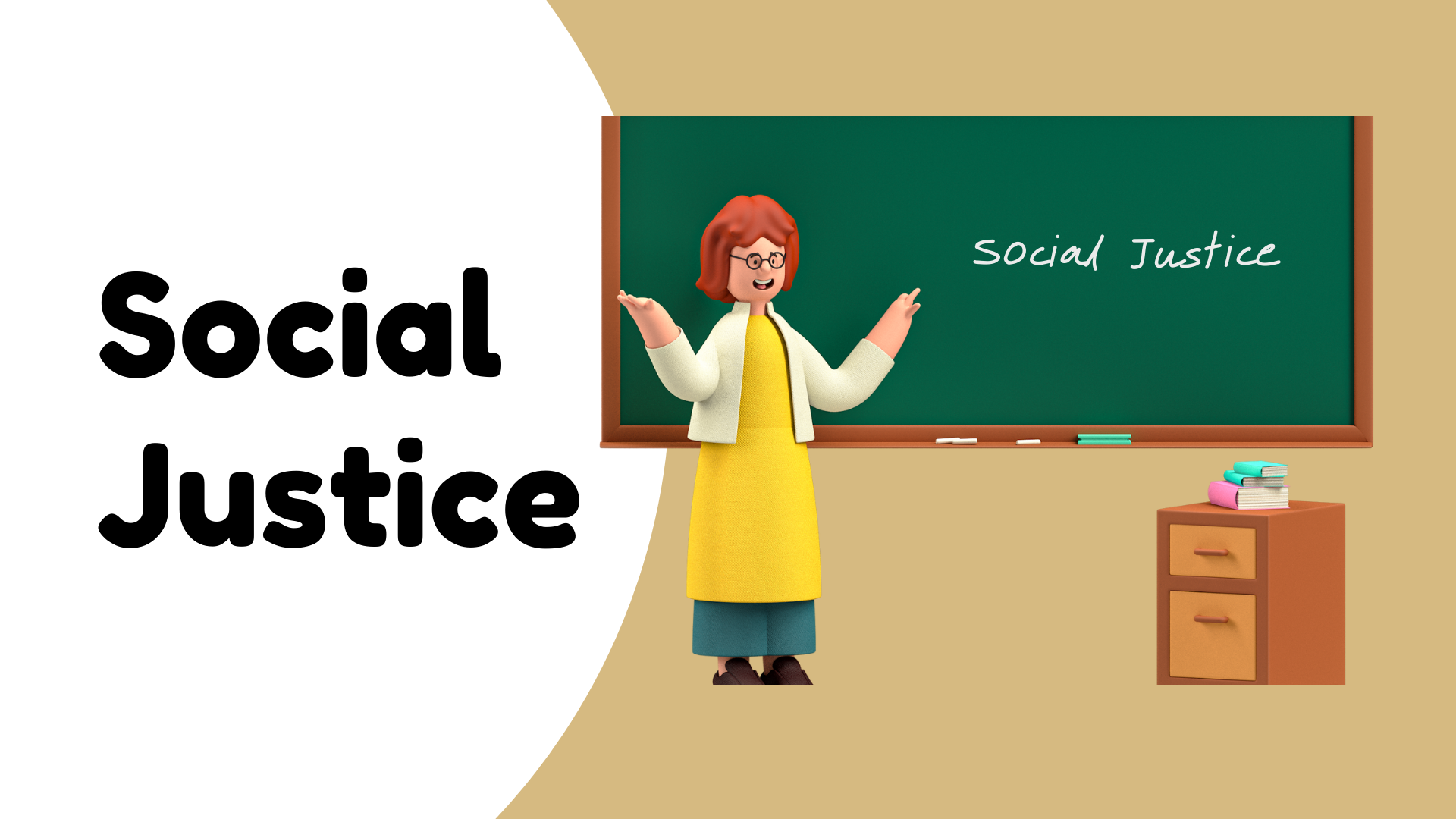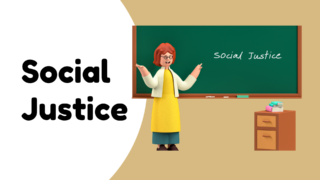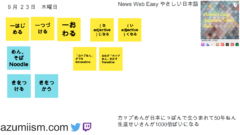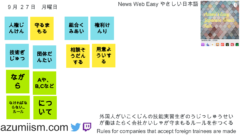Hello everyone, what’s up?
In my last article, I examined the cycle of socialization that every single individual experiences throughout their life.
In this article, I am exploring the TED-Talk by Ibram X. Kendi.
こんにちは、みなさん!調子はどうですか。
前回の記事では、一人ひとりが生涯を通じて経験する社会化のサイクルをみていきました。
この記事では、Ibram X.KendiによるTEDトークについて説明します。

Racism#4
TED-Talk by Ibram X. Kendi(51’04)
Ibram X. Kendi is a historian and author. He writes about ending racism in all its forms. The link above goes to his articles in Atlantic. The TED talk below provides the discussion regarding racism with a 51-min volume with two other speakers.
イブラム・X・ケンディは歴史家であり作家です。彼は人種差別を終わらせるためのあらゆる種類の記事を書いています。上記のリンクからは、Atlanticに執筆しているの記事を読むことができます。以下のTEDトークでは、51分のボリュームで二人のスピーカーと共に人種差別について議論しています。
- not racist, anti-racist
- not racist: a racist who is in denial.
- anti-racist: who is willing to admit to be a racist, and willing to admit to be vulnerable.
- 非人種差別主義者と反人種差別主義者
- 非人種差別主義者:人種差別主義者であることを否定している状態
- 反人種差別主義者:人種差別主義者であることを認め、自分がもろい存在であることを認める意思のある人
- how define a racist
- ✖connect to a bad person
- ⭕a person is saying or doing in any given moment
- 人種差別主義者の定義
- ✖悪い人という解釈
- ⭕あるときに何かを言ったり特定の振る舞いをする人
- target: someone who has weaker power than you
- might use racist rhetoric for weaker people
- agent: anyone who is not viewing racism as the problem is not being anti-racist.
- 標的:自分より弱い立場の人
- 人種差別的なレトリックを使って差別をする
- 代行者:人種差別を問題として見ていない人
- =反差別主義者じゃない人
- anti-racism and the potential for systemic change
- a direct relationship between racism and social systems
- something wrong with people, or wrong with power and policy.
- talking about groups not individual
- transforming and challenging power and policy are needed
- 反人種差別運動と制度的変更の可能性
- 人種差別と社会制度には直接の関係ががある
- 問題が人自体にあるのか、問題が権力と政策あるのか
- 個人についてではなく、社会的なグループという単位で話す必要がある
- 権力と政策の構造を変えていくことが求められる
- anti-racism and the potential for systemic change
- a direct relationship between racism and social systems
- something wrong with people, or wrong with power and policy.
- talking about groups not individual
- transforming and challenging power and policy are needed
- 反人種差別運動と制度的な変革の可能性
- 人種差別と社会制度には直接の関係ががある
- 問題が人自体にあるのか、問題が権力と政策あるのか
- 個人についてではなく、社会的なグループという単位で話す必要がある
- 権力と政策の構造を変えていくことが求められる
- white privilege has not to have the difficult conversations.
- would white have more, if they had a more equitable society?
- they don’t have to be altruistic, they can have intelligent self-interest.
- racism causes a problem that a different type of policies, government, priorities.
- wealth is inherited, due to policies, and it expand the racial wealth gap.
- 白人特権について話すことを難しいものと思う必要はない
- もしもっと平等な世界が実現したらどうなるだろう、と考えてみること
- 利他的である必要もない。知的に自分自身の利益として考えることが可能。
- 人種差別が異なるタイプの政策や政府、社会の優先順位の問題を引き起こしていることに目を向ける。
- 政策によって優位に相続される富が、貧富の差を拡大させている。
- possible benefits
- high-quality free health care
- closing gap
- having an culture of anti-racist ideas.
- 手に入れ得る利益
- 質の高い無償医療
- 貧富の差の縮小化
- 反人種差別主義の文化
- how to bring anti-racism into their lives
- keep in mind your actions may hurt or harm others
- mental exhaustion: do not want make mistakes
- to recognize when we make a mistake
- to assess own words, deeds.
- to fight against addiction: racism is like addiction, and in order to fight, you have to think about it not temporarily but regularly.
- to restrain oneself from reverting back to what one’s addicted to liberate.
- どのようにして半差別主義の考え方を生活の一部にするか
- 自分の行動が誰かを傷つけたり害を与えるかもしれないこと常に意識する
- 常に意識することは精神的な疲労を伴う
- 間違いをおかしたときに、そのことを認識すること
- 自分の言葉や、考え方を客観的に考察すること
- 差別主義思考への依存とたたかう:人種差別は依存のようなもの、それに対抗するためには一時的にではなく常に意識する必要がある
- 中毒状態に戻らないように自分を律し続ける
- intersectionality
- every race is a collection of racialized intersectional groups
- super-feminine white woman and a strong hyper masculine black woman is to understand sexist ideas, to reject sexist ideas.
- black queer people have been tagged as more hyper-sexual than white queer and black heterosexuals.
- 交差性とは
- 人種一つひとつが、人種ごとによって交差するグループである
- 特段に男性的な黒人女性は女性的な白人女性に比べて劣っているとみなされるだけでなく、男性的な白人女性と比べてもまた劣っているとみなされる偏見
- 黒人のクィアは異性主義者だけでなく白人クィアと比べてもより性的指向が強いという偏見
- cancel culture and anti-racism
- racist in the past and it comes to light. how do we respond?
- we cannot cancel them. we have to give people to admit and change, as far as they admit how egregious they were.
- Without admitting their past behaviors, they would be cancelled.
- need to figure out a way to discern those who are refusing to transform themselves and those who admit their , recognize their mistakes and commit to transform themselves.
- キャンセル文化と反人種差別運動
- 過去に差別主義者だった人が、反人種差別に目覚めたときどのように応答すべきか?
- それを否定することはできない。彼らがどれほどひどいことをしてきたかを自分自身で認める限りは、それを受け止める
- 過去の振る舞いを認めることをしない人は、受け止められることもないだろう
- 自分自身を変えようとしたがらない人と、自分の過ちを認識て自分を変えようとする人を、識別する方法を探っていく必要がある。
- how anti-racism can stay central?
- not to do participate to feel better
- to put into place, put into practice
- to see other country’s models
- 半差別主義運動を世論の中心に留めるために必要なことは
- 自分がそれをして気分がよくなる、といった個人的感情のために参加しないこと
- 常に意識をする訓練をすること
- 他の国を手本にする
- other country’s models
- police don’t wear weapons
- more police, less prisoner
- sizable social safety nets for people committing crimes out of poverty, despair.
- モデルとなる例
- 武装していない警察
- 服役者の少ない国
- 貧困や絶望から犯罪を犯す人々のための社会的なセーフティネット。
- article”Who Gets To Be Afraid in America”
- ‘What I am, a black male, should not matter. Who I am should matter’
- people do not view me as dangerous thereby that makes my existence not dangerous.
- no one asked to assimilate into white American culture
- find a way to appreciate difference, all of the human ethnic and cultural difference existed in the US can make the country great.
- 記事「アメリカで恐れるのは誰か」について
- 私が何者であるかが重要なのであり、私が黒人男性であることは問題ではないはずである
- 人々が私を危険だとは見なさないことが、私の存在を危険でなくさせる
- 白人アメリカ文化に同化することを求めないこと
- 違いを理解する方法を見つけること:米国に存在する人々の民族的および文化的な違いのすべてがアメリカを素晴らしい国にすることができる
Azumi’s view◼アズミの見方
Three points that are important in his talk
The most important part of his talk culminated that “it is very important to be aware that ‘I’m not a racist’ means a racist who is in denial.” As he mentioned in his talk, a racist should be defined as a person who is saying or doing racist behavior at any given moment. The racism problem should be seen as a group dynamic rather than individual behaviors of free will. It doesn’t matter if you are a target or an agent. Without understanding this social structure of dividing people by race, anyone can be racist toward someone else.
このTed-talkで私が重要だと思ったポイント3つ
彼のトークの最も重要な部分はやはり、「 『私は人種差別主義者ではない』というのは、人種差別主義者の人がそれを否定している状態なのだ、ということを認識することが非常に重要である」という部分だと思います。話の中で彼は、人種差別主義者というのは、いつでもどこでもそうであるというわけではなく、ある瞬間に人種差別主義的な行動を取ったり言ったりすることと定義されるべきだと主張しました。人種差別の問題は、個人の自由意志に基づく行動なのではなく、集団の動的な現象として見なされるべきなのです。その人がターゲットであるかエージェントであるかは関係ありません。人種によって人を人を分けるというこの社会構造を理解していなければ、誰もが他の人に対して人種差別主義者になる可能性があるのです。
The second point; in order to eradicate racism, people should see the potential benefits for an equitable society. When I came to the United States, I also believed that America was the greatest country. That belief came from the imperial oppression that the Japanese experienced and internalized when American GHQ governed the nation in 1945. It had become easily reinforced while living there.
Therefore, once I started to learn how society works in the U.N., I noticed that this ground-less belief how strongly blind not only myself but also its own population not to see a better society. If the U.S. seizes the economic power, they should be able to materialize a better society, however, they seem not to notice they live in a suffering society.
2つ目のポイント。人種差別の根絶に取り組む際に、私達は公平な社会がもたらされたときに享受しうる潜在的な利益について考えるべきだという点です。アメリカに来たとき、私の中にはアメリカはNo.1の国というイメージがありました(アメリカは自分をNo.1といつも言っているイメージがあり、自分自身も特にそこに異論を持っていなかったんですね)。その考え方の根底にあったのは、1945年にアメリカのGHQが日本を統治し、その時に日本人が経験し内面化したアメリカや西欧諸国の帝国主義のからの抑圧だといえるでしょう(アメリカは勝った強者、日本は負けた弱者という構図ですね)。
アメリカ社会について学び始めるとすぐに、この帝国主義抑圧に影響された“アメリカは優れた国”という私の中の考えがいかに根拠のない確信であるかということに気が付きました。そしてそれは私自身だけが持っているものではなく、アメリカ国民全体も同じだということに気が付きました。この「アメリカは優れた国だ」という考え方は、より良い社会が存在するということを見えなくさせていると思います。アメリカが経済力No.1の国であるというのならば、その経済力でより良い社会を実現できると思いたいところですが、そもそもアメリカの人々は苦しんでいる社会に生きていると気がついていないので、よりよくしようがないという状況のように見えるのです。
The last point is that considering racism as an addiction. In order to liberate oneself from addiction, one should do pay attention to it the entire time. So does racism. We need to pay close attention to our behavior and deeds to eradicate it. We have to be prepared that we sometimes would make a mistake.
As I explored the cycle of socialization in the previous article, this is a kind of brainwashed -thing. It is super easy to be blind. Because through entire life-time, people are educated to follow this cycle of socialization. It was interesting that Kendi called it addiction figuratively. The cycle of socialization is the obvious human social construction, and from that viewpoint, I would say that everyone would be supposed to be racist since we have been educated about it continuously. If so, the ‘I am not racist’ argument becomes a very immature excuse because it would just mean this person just hasn’t noticed this social construction that doesn’t fit this modern time.
First, one should see the point that everyone can be a racist without acknowledging the cycle of socialization. When they learn the cycle of socialization, it would be their choice, either they remain themselves as a racist or transform themselves as an anti-racist.
最後は、人種差別を中毒として見るという点です。何かの中毒症状から自分を解放するためには、常にその中毒物質に注意を払う必要があります。人種差別も同じです。人種差別を根絶するためには、行動や振る舞いに細心の注意を払う必要があります。私たちは時々間違いを犯す可能性があることを、心しなければなりません。
前回の記事で社会化のサイクルをみてきたように、これは一種の洗脳なのです。盲目になるのはとても簡単です。なぜなら、生涯を通じて、人はこの社会化のサイクルに従うように教育されているからです。ケンディがそれを比喩的に中毒と呼んだのはおもしろいなと思いました。社会化のサイクルは明らかな人間の社会的構築物であり、その観点から言えば、私たちの誰もが人種差別主義者であると言えると思います。そう教育されてきたんですから。そう考えると、「私は人種差別主義者ではない」という言論は非常な稚拙な発言と言わざるを得ません。なぜならそれは、その人がこの現代に適合しなくなってきているこの社会的構築物の存在にまだ気づいていないことを意味するからです。
まず、社会化のサイクルを認知せずしては、誰もが人種差別主義者になり得るという点を理解する必要があります。そして、社会化のサイクルを学んだときに選択が訪れます。人種差別主義者で居続けこの社会化のサイクルを回す車輪の一つに甘んじ続けるのか、反人種差別主義者として自分自身を変容させるのか、です。






コメント